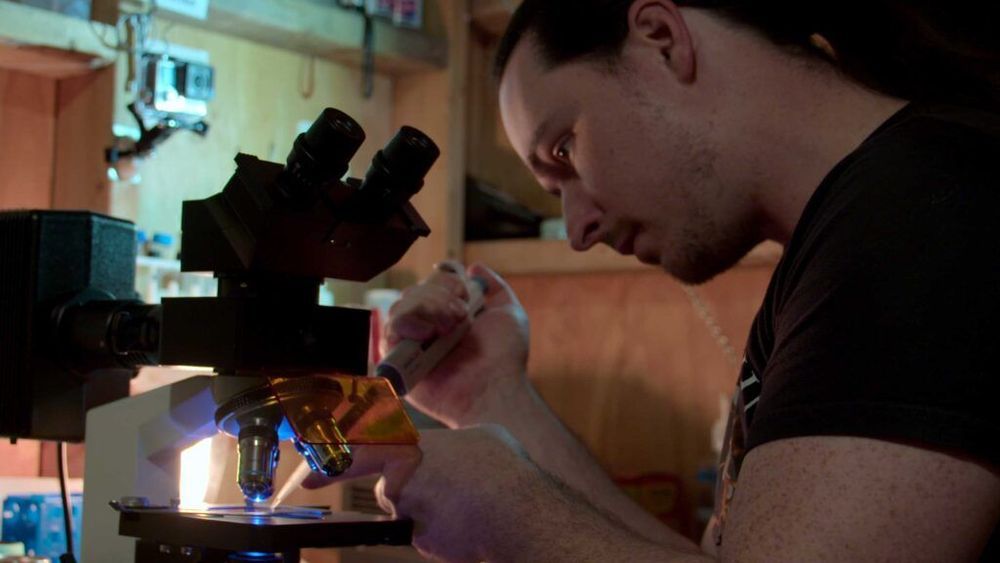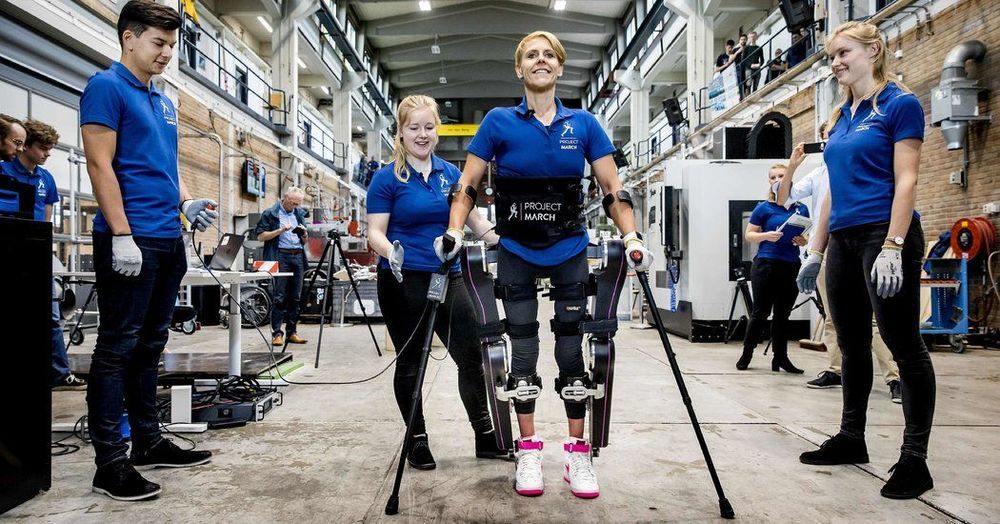The new CRISPR gene technology is posing ethical questions for scientists.


“…consider Robert Nozick’s thought-experiment in conjunction with Felipe De Brigard’s inverse experience machine argument: “If you like it, does it matter if it’s real?”
Does Nozick’s experience machine prove anything?
Perhaps consider Robert Nozick’s thought-experiment in conjunction with Felipe De Brigard’s inverse experience machine argument: “If you like it, does it matter if it’s real?”
For sure, many subjects say they wouldn’t plug into Nozick’s Experience Machine; but conversely, many of these same respondents claim they wouldn’t want to unplug from an Experience Machine if told their existing lives were based on a lie. In short, maybe what is really being measured is not simply our (lack of) commitment to hedonism or realism, but rather status quo bias.
Even self-avowed classical utilitarians may balk on realising what their own ethics entails.

By contemplating the full spectrum of scenarios of the coming technological singularity many can place their bets in favor of the Cybernetic Singularity which is a sure path to digital immortality and godhood as opposed to the AI Singularity when Homo sapiens is retired as a senescent parent. This meta-system transition from the networked Global Brain to the Gaian Mind is all about evolution of our own individual minds, it’s all about our own Self-Transcendence. https://www.ecstadelic.net/top-stories/the-ouroboros-code-br…etaphysics #OuroborosCode
All AI & Cybernetics Cognitive Science Complexity Consciousness Cosmology Digital Philosophy Digital Physics Economics Emergence Environment Epigenetics Ethics Evolution Evolutionary Biology Experiential Realism Experimental Science Fermi Paradox Free Will Vs. Determinism Futurism Gaia 2.0 Global Brain Immortality Machine Learning Mathematics Memetics Mind Uploading Nanotechnology Neo Transcendentalism Neural Networks Neurophilosophy Neuroscience Phenomenology Philosophy Of Mind Physics Of Time Psychedelics Psychology Quantum Computing Quantum Gravity Quantum Physics Sci Fi Simulation Hypothesis Sociology Spirituality Technological Singularity Theology Transhumanism Virtual Reality

Mankind’s ability to edit the fabric of human life has led to scientific upheaval, global debate, and at least one international incident. Now, it’s coming to Netflix.
“Unnatural Selection,” a four-part docuseries debuting Friday, dissects the stories, science, and ethics behind genome editing, following academics, biohackers, and patients as they move through a brave new world made possible by technologies like CRISPR.
We recently spoke with co-directors Joe Egender and Leeor Kaufman about how the series came to be and how it frames the sprawling story of human genetic engineering. This transcript has been lightly edited for clarity.

John Mullan, professor of English literature at University College London, wrote an article on The Guardian titled “We need robots to have morals. Could Shakespeare and Austen help?”.
Using great literature to teach ethics to machines is a dangerous game. The classics are a moral minefield.
When he wrote the stories in I, Robot in the 1940s, Isaac Asimov imagined a world in which robots do all humanity’s tedious or unpleasant jobs for them, but where their powers have to be restrained. They are programmed to obey three laws. A robot may not injure another human being, even through inaction; a robot must obey a human being (except to contradict the previous law); a robot must protect itself (unless this contradicts either of the previous laws).
Roboethics wants to answer the question of who or what is going to be held responsible for the actions of the robotic creations of engineers and designers until robots become moral actors, if that ever happens.

I’m excited to share my new article for The New York Times on the brave new world of #cyborg ability and coming #transhumanism sports:
I wonder whether the sporting industry might create some new competitions where — just like technology — performance-enhancing drugs are encouraged. Innovations like the new oxygen-infused injection, which might one day allow humans to hold their breath for 15 to 30 minutes, could allow competitive free divers to reach new depths, showing just how far the human body can go.
Critics will complain that the human body was not designed to compete using enhancements and that it violates the code given to us by the ancient Greeks and their first Olympics Games, where “arête,” or excellence and moral virtue, was cherished. As a longtime competitive athlete, I appreciate the sportsmanship angle; but I also think that in the 21st century we can develop both the drugs and the technology to see humans compete in new sporting events that are even more exciting than their predecessors.
It’s hard to imagine the public wouldn’t want to see swimmers with fingers surgically webbed together to act like paddles, or weight lifters using short-lasting adrenaline shots, or 150-mile-per-hour baseball pitches thrown from bionic limbs.
Drugs and performance-enhancing technology would not have to challenge any existing sporting competitions and their cultures. It would simply be a new category of sports with different athletes. And like the Cybathlon, these types of competition do more than just entertain — they lead the way forward for the medical and transhumanist industries seeking to improve the human being. Competitions would be pilgrimages for medical professionals and entrepreneurs looking to buy and possibly mass produce the latest unique technologies.
Nick Bostrom is a Swedish philosopher at the University of Oxford known for his work on existential risk, the anthropic principle, human enhancement ethics, superintelligence risks, and the reversal test.
We can evolve bacteria, plants and animals. Is it ethical to evolve the human body? I say yes.
And it becomes a moral imperative because it’s going to be really hard to live on Mars if we don’t fundamentally modify the human body. Right? You go from one cell, mom and dad coming together to make one cell, in a cascade to 10 trillion cells. We don’t know, if you change the gravity substantially, if the same thing will happen to create your body. We do know that if you expose our bodies as they currently are to a lot of radiation, we will die. So as you’re thinking of that, you have to really redesign things just to get to Mars. Forget about the moons of Neptune or Jupiter.
And to borrow from Nikolai Kardashev, let’s think about life in a series of scales. So Life One civilization is a civilization that begins to alter his or her looks. And we’ve been doing that for thousands of years. You’ve got tummy tucks and you’ve got this and you’ve got that. You alter your looks, and I’m told that not all of those alterations take place for medical reasons.
Seems odd.
A Life Two civilization is a different civilization. A Life Two civilization alters fundamental aspects of the body. So you put human growth hormone in, the person grows taller, or you put x in and the person gets fatter or loses metabolism or does a whole series of things, but you’re altering the functions in a fundamental way.

But in many ways, the field of AI ethics remains limited. Researchers say they are blocked from investigating many systems thanks to trade secrecy protections and laws like the Computer Fraud and Abuse Act (CFAA). As interpreted by the courts, that law criminalizes breaking a website or platform’s terms of service, an often necessary step for researchers trying to audit online AI systems for unfair biases.
Whittaker acknowledges the potential for the AI ethics movement to be co-opted. But as someone who has fought for accountability from within Silicon Valley and outside it, Whittaker says she has seen the tech world begin to undergo a deep transformation in recent years. “You have thousands and thousands of workers across the industry who are recognizing the stakes of their work,” Whittaker explains. “We don’t want to be complicit in building things that do harm. We don’t want to be complicit in building things that benefit only a few and extract more and more from the many.”
It may be too soon to tell if that new consciousness will precipitate real systemic change. But facing academic, regulatory and internal scrutiny, it is at least safe to say that the industry won’t be going back to the adolescent, devil-may-care days of “move fast and break things” anytime soon.
“There has been a significant shift and it can’t be understated,” says Whittaker. “The cat is out of the box, and it’s not going back in.”